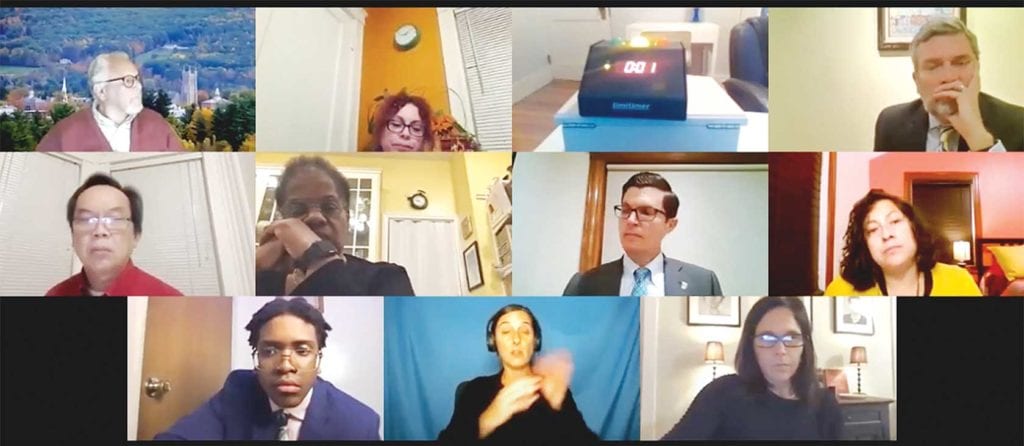Poll: Boston voters overwhelmingly support elected school committee
Attitudes have changed in the 26 years since Boston moved to appointed body

In the 1990s, the elected Boston School Committee suffered a one-two punch. First, then-Mayor Raymond Flynn and the City Council passed a home rule petition to transition to an appointed school committee. Then, in 1996, 70% of voters backed the change, putting in place the structure that has persisted for the last 24 years.
But were the city’s voters to face the same question they voted on in 1996, would they make the same choice today?
The answer, according to a poll conducted in December, would be a resounding “no,” according to political consultants David Fadul and Isabel Holloway, whose firm, Poll Progressive, polled 480 Boston voters and found that 60% would support a return to an elected body.
“There’s been so much change in Boston in every conceivable way,” Fadul said. “I think the attitudes toward the School Committee reflect that.”
When the city made the change in the 1990s, the elected school committee was dogged by news articles about corruption and infighting among committee members. Flynn made the case that a mayoral-appointed body would ensure that the city’s chief executive is solely responsible for the success or failure of the schools.
Although many of those who voted 24 years ago are still voting now, Fadul said a majority of those polled in every age group expressed support for a return to an elected body.
In recent years, parents and elected officials who support a return to an elected school committee have cited what they say is a body that is not responsive to the parents and students whose interests it is supposed to represent.
“They have a direct line of accountability to the mayor,” said Black Educators’ Alliance of Massachusetts President Edith Bazile of the appointed body. “Their direct link is not to the people. Each vote they take is unanimous. There’s not a lot of discussion or debate.”
The Boston Herald in 2019 analyzed a year’s worth of School Committee votes and found that the body voted in favor of all 111 action items put before them, with just four abstentions and no votes against. When asked about the body’s voting record, then-Chairman Michael Loconto refused to comment on the matter and told a Herald reporter not to reach out to other committee members.
Loconto resigned from the committee in October after he was overheard apparently making fun of Chinese-sounding names during a School Committee meeting on Zoom. The incident fueled more negative publicity for the body.
City Council President Kim Janey, who supports a move to a hybrid committee containing elected and appointed members, said she has sat through numerous School Committee meetings over the years in which members voted against the will of parents and students who testified before them.
“Too many times I saw parents, students and activists pour their hearts out and advocate, and yet we would never see the body act in a way that independent stakeholders want,” she said. “The people of Boston, the families of our schools, deserve to have a voice. We need a body that will be accountable to families as well as to the mayor.”
For the Poll Progressive survey, Fadul used cell phone numbers to obtain his sample of 480 people, sending text messages to registered voters. The weighted sample was 54.5% white, 23.2% Black, 12.1% Latino and 4% Asian.







